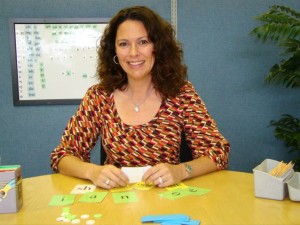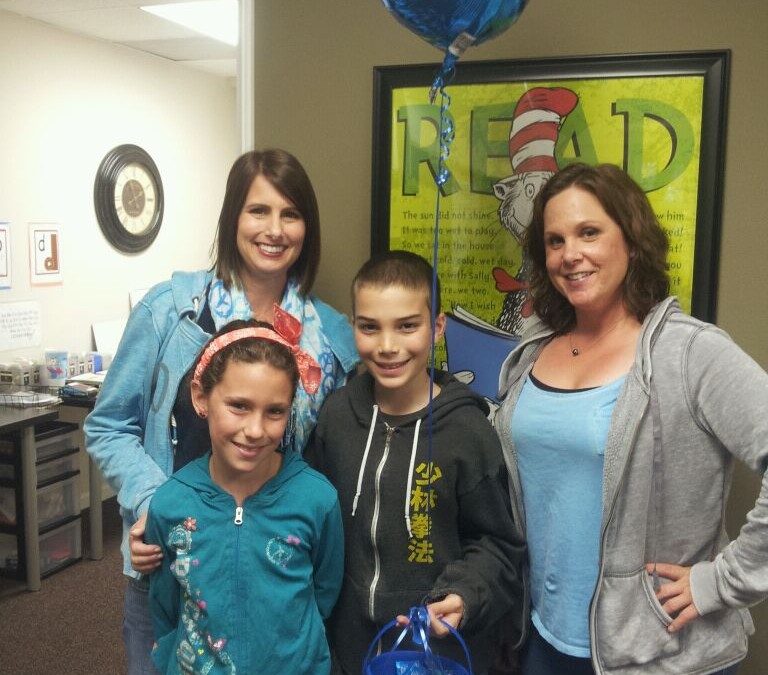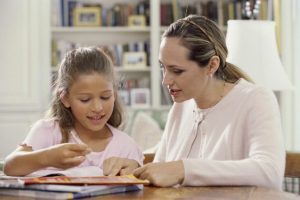
by PRIDE Reading Program Admin | Oct 14, 2015 | A PRIDE Post, Articles & Resources
In the children’s book Madeline, Nurse Clavel is lying in bed when she bolts upright in fright in the middle of the night and says, “Something is not right.”
She had the good sense to trust her intuition about a child in her care. Parents who suspect that something may not be right can trust their intuition and do well to follow Nurse Clavel’s example to get help.
A parent’s intuition is a reliable indicator of the existence of a learning difference or a disability, which interferes with a child’s ability to access the curriculum in school.
When a child is not doing well in school, there may be good reason for you to request an immediate assessment. Responsible parents always want to be certain the school is providing what is needed for their child to succeed in school. To know what is necessary, an assessment is the first thing to do in order to identify the issues to remedy.
What is an assessment?
An assessment is simply a standardized test performed by someone trained and licensed to understand how to give the test and how to interpret the results. The assessor will write a report. If the report indicates a need for special education services or accommodations, school staff and parents in a meeting will discuss the report’s findings.
Parents will receive notice of the meeting. It is called an IEP meeting. An Individual Education Plan designed to provide FAPE, a Free; the IEP team will design Appropriate Public Education. The document, which results from the IEP team meeting, is also called “The IEP.” The IEP is a contract between parents, who are the holders of a child’s educational rights, and the child’s school. There are many ways parents can affect an offer of FAPE, and among them is participating fully in the IEP process, and being certain that all areas of suspected disability are assessed and investigated — thoroughly, fairly and objectively.
How do you get an assessment?
You write a letter to the school and ask for one in a signed and dated letter, describing why you believe your child needs to be assessed.
Be brief, and describe what it is that makes you think an assessment should be performed. If you can, describe the possible disabilities, which prompted your writing: hearing, vision, learning difference, other health impairment, etc.
How is a learning disability remedied?
Students who have been assessed often require more educational services, accommodations, support and/or remediation than those provided to the general student population. These are called ‘special education services’ and Federal and State laws created special education as a civil right.
Are Special Education Services and Accommodations Really Special?
Imagine a pencil taped very high on the wall.
It is not within easy reach for people of average height.
People of average height must jump to reach the pencil and take it off the wall.
People who are very tall will easily extend an arm to reach the pencil and take it down.
People who are very short must stand on a chair to reach the pencil and take it down.
— That chair describes special education services and accommodations.
Here are some insights about our perceptions of those using the chair: The shortest people are no less worthy for needing the chair. The tallest people are no more worthy for not needing the chair. People are people — and some of us need the chair to reach the pencil. The chair levels the playing field.
One in five children have a learning disability, and these range from hardly noticeable to severe. With expert and targeted remedial help — and heaps of extra praise — children with learning disabilities can be taught appropriately and motivated to work extra hard to address their learning needs effectively.
How do you know whether an assessment is needed?
You look for signs and symptoms. A child with a learning disability, for example, will take in and process information differently and needs to be taught by specialists. Some people with learning differences also have another diagnosis, such as ADHD.
Effective early intervention is the key to succeeding in life! It can be a tremendous relief to you as a parent if you understand that success is not necessarily affected by learning differences if learning differences are remedied appropriately – so, the training needed must begin sooner rather than later for the best result. It is heartwarming to see the relief a child feels when their reading ability improves after struggling so long. Their self-esteem improves as their abilities improve.
Because early intervention is best, the sooner parents can identify a learning disability and complete the assessment process, the sooner a child can begin to be taught in a way that makes sense.
What method makes sense?
One that works! Forty percent of children in the United States have difficulties learning to read. Most of these children can learn to read at average grade levels if taught appropriately.
The most well-known and effective method for reading intervention is the Orton-Gillingham approach. With this approach, the teacher presents the building blocks of our language, vowels and consonants, one or two at a time, using a multisensory technique.
Here is an example of multisensory teaching: prompted by the letter ‘A’ on a flashcard, a student will say it’s name, say its sound, and ‘write’ the letter ‘A’ on their other palm using an inkless index finger. This technique uses sight, hearing, movement and touch.
Orton-Gillingham-trained teachers help students with dyslexia to progress because of the sequential, repetitive and systematic structure of the Orton-Gillingham approach. It is effective, thorough — but also slow. Unfortunately, due to the time requirements in public school classrooms, most teachers cannot incorporate this method into their daily curriculum.
But, you can’t remedy what you don’t thoroughly understand. Here are some indications that an assessment is needed for a learning disability. Other disabilities have other indications for which an assessment can be requested. See www.pridelearningcenter.com for more about learning disabilities.
- Choppy and labored reading
- Reading comprehension inconsistent with intelligence
- Words are omitted or lines of text are skipped over while reading
- Unusual spelling
- Disoriented handwriting
- Easily distracted
- Attention wanders and on-task focus disappears
- Labored writing
- Spatial disorientation
- May ignore margins completely
- May pack words or sentences too tightly on the page
- Disorganized
- Frustrated with expressive written and oral communication
- Doesn’t complete class work or homework on time
- Wrongly accused of being lazy, unmotivated, difficult or unintelligent
- Letter reversals
- Difficulty copying off the board
If, like Nurse Clavel, you find your intuition keeping you awake at night, look for indications that an assessment is needed. And get your child assessed!
About the Authors

Karina Richland, M.A. is the Founder of Pride Learning Centers, located in Los Angeles and Orange County. Ms. Richland is a reading and learning disability specialist. She speaks frequently to parents, teachers, and professionals on learning differences, and writes for several journals and publications. You can reach her by email at karina@pridelearningcenter.com
Learn more about the New PRIDE Reading Program

Nan, Waldman, Esq. is a special education and disabilities consultant in Los Angeles with 20 years of experience in the field. She is also a parent and primary caregiver of a child with disabilities, a teacher, an advocate and a lawyer. Nan Waldman, Esq. can be reached by email at n.waldman.esq@gmail.com

by PRIDE Reading Program Admin | Sep 21, 2015 | Articles & Resources
As the season turns to fall – it is the perfect time to bake an apple pie. Or better yet, mix up a batch of apple pie play dough, because it smells just as good as apple pie!
This recipe is so smooth and silky and smells delicious!
Here is the recipe:
2 cups baking soda
1 cup corn flour
1 ½ cups water
1 Table Spoon vegetable oil
Food Coloring (red or green )
1 Tablespoon cinnamon and 1 Tablesoon All Spice
- Add all the above ingredients into a pot except for the spices
- Stir well
- Put it onto the stove and cook until it turns into a thick mush – and becomes really hard to stir.
- It will be a bit sticky
- Set the dough aside for a few minutes and knead when cool enough to touch
- Now you can add the yummy spices to the dough – and knead it further
Happy Playing!
The play dough can be stored in a plastic zip lock bag in the fridge

by PRIDE Reading Program Admin | Mar 30, 2015 | Articles & Resources, Autism
PRIDE Learning Center will help raise awareness for autism by participating in the “Light it Up Blue” campaign beginning April 2, 2015.
On April 2, 2015, Autism Speaks, the world’s leading autism advocacy organization, promotes their annual event called Light it Up Blue. This is a global initiative that kicks-off Autism Awareness Month. In honor of this day, many iconic landmarks, hotels, sporting venues, concert halls, museums and retail stores are among the many communities that take part in Light it Up Blue. Autism Speaks is dedicated to funding research into the causes, prevention, treatments and a cure for autism.
PRIDE Learning Center, will help raise awareness by participating in the Light it Up Blue campaign. All four PRIDE Learning Centers will be decorated in blue with displays and handouts about autism on Thursday, April 2, 2014 and there will be blue treats for the entire community. In addition, the employees at PRIDE Learning Center will be dressed in blue.
“We support the Light it Up Blue campaign,” says Karina Richland, owner of PRIDE Learning Centers. “We want to help increase the awareness of Autism Spectrum Disorders and advocate for the needs of individuals with autism and their families” says Richland.
Autism statistics from the U.S Center for Disease Control and Prevention (CDC) identify around 1 in 88 American children as on the autism spectrum. Studies also show that autism is four to five times more common among boys than girls. An estimated 1 out of 54 boys and 1 in 252 girls are diagnosed with autism in the United States.
“We are so pleased and excited to participate in this event to bring autism awareness to the forefront and show that we at PRIDE Learning Center support research efforts to bring an end to this epidemic,” says Richland.
PRIDE Learning Center has four locations in Redondo Beach, Newport Beach, San Clemente and Mission Viejo. For more information visit the PRIDE Learning Center website at www.pridelearningcenter.com or call 866-774-3342.

by PRIDE Reading Program Admin | Jan 25, 2015 | Articles & Resources, Dyslexia
PRIDE Learning Center Manhattan Beach In-Home Tutoring for Dyslexia works with students of all ages. Our learning specialists are Orton-Gillingham trained and provide dyslexic students with the tools they need to become more efficient learners. With the PRIDE program and our in-home Tutors, Dyslexic students become better readers, more organized and build better study skills.
Dyslexia is a specific learning disability that is neurological in origin and primarily affects one’s ability to learn to read. Dyslexia is characterized by difficulties with accurate and fluent word recognition and by poor spelling and decoding abilities. Dyslexia varies in degrees of severity and is highly hereditary. It is not uncommon for a child with dyslexia to have an immediate family member who also has this condition. Also, it is not unusual for two or more children in a family to have dyslexia. PRIDE Manhattan Beach In-Home Tutoring for Dyslexia Can Help.
Treatment
The sooner a child with dyslexia is given proper instruction, particularly in the very early grades, the more likely it is that they will have fewer or milder difficulties later in life.
Older students or adults with dyslexia will need intensive tutoring in reading, writing and spelling using an Orton-Gillingham program. During this training, students will overcome many reading difficulties and learn strategies that will last a lifetime.
Reading instruction for the dyslexic child must be delivered with great intensity. Children diagnosed with dyslexia are behind in their reading levels and for them to catch up with their classmates will need to make a big leap forward or else they will remain behind. Optimally, a child who is struggling with reading should be taught one-on-one and should receive this specialized reading instruction 2-3 hours Three to five days a week. A larger group or less time will greatly undermine the possibilities of success.
This specialized tutoring helps dyslexic students become successful in reading, writing, spelling, grammar, and vocabulary. It also will help them with math, and word problems.
At Manhattan Beach In-Home Tutoring for Dyslexia, we travel to your home, if you live in the Manhattan Beach area (Manhattan Beach, Hermosa Beach, Redondo Beach). We also offer online tutoring services.
In-Home rates are $90.00 per hour
For more information or to schedule your first lesson contact our Redondo Beach Center .

by PRIDE Reading Program Admin | Jan 25, 2015 | Articles & Resources, Dyslexia
PRIDE Learning Center Newport Beach In-Home Tutoring for Dyslexia works with students of all ages. Our learning specialists are Orton-Gillingham trained and provide dyslexic students with the tools they need to become more efficient learners. With the PRIDE program and our in-home Tutors, Dyslexic students become better readers, more organized and build better study skills.
Dyslexia is a specific learning disability that is neurological in origin and primarily affects one’s ability to learn to read. Dyslexia is characterized by difficulties with accurate and fluent word recognition and by poor spelling and decoding abilities. Dyslexia varies in degrees of severity and is highly hereditary. It is not uncommon for a child with dyslexia to have an immediate family member who also has this condition. Also, it is not unusual for two or more children in a family to have dyslexia. PRIDE Newport Beach In-Home Tutoring for Dyslexia Can Help.
Treatment
The sooner a child with dyslexia is given proper instruction, particularly in the very early grades, the more likely it is that they will have fewer or milder difficulties later in life.
Older students or adults with dyslexia will need intensive tutoring in reading, writing and spelling using an Orton-Gillingham program. During this training, students will overcome many reading difficulties and learn strategies that will last a lifetime.
Reading instruction for the dyslexic child must be delivered with great intensity. Children diagnosed with dyslexia are behind in their reading levels and for them to catch up with their classmates will need to make a big leap forward or else they will remain behind. Optimally, a child who is struggling with reading should be taught one-on-one and should receive this specialized reading instruction 2-3 hours Three to five days a week. A larger group or less time will greatly undermine the possibilities of success.
This specialized tutoring helps dyslexic students become successful in reading, writing, spelling, grammar, and vocabulary. It also will help them with math, and word problems.
At PRIDE Newport Beach In-Home Tutoring for Dyslexia, we travel to your home, if you live in the Newport Beach area (Newport Beach, Corona del Mar, Newport Coast). We also offer online tutoring services.
In-Home rates are $90.00 per hour
For more information or to schedule your first lesson contact our Newport Beach Center .

by PRIDE Reading Program Admin | Jan 25, 2015 | Articles & Resources, Dyslexia
PRIDE Learning Center Palos Verdes In-Home Tutoring for Dyslexia works with students of all ages. Our learning specialists are Orton-Gillingham trained and provide dyslexic students with the tools they need to become more efficient learners. With the PRIDE program and our in-home Tutors, Dyslexic students become better readers, more organized and build better study skills.
Dyslexia is a specific learning disability that is neurological in origin and primarily affects one’s ability to learn to read. Dyslexia is characterized by difficulties with accurate and fluent word recognition and by poor spelling and decoding abilities. Dyslexia varies in degrees of severity and is highly hereditary. It is not uncommon for a child with dyslexia to have an immediate family member who also has this condition. Also, it is not unusual for two or more children in a family to have dyslexia. PRIDE Palos Verdes In-Home Tutoring for Dyslexia Can Help.
Treatment
The sooner a child with dyslexia is given proper instruction, particularly in the very early grades, the more likely it is that they will have fewer or milder difficulties later in life.
Older students or adults with dyslexia will need intensive tutoring in reading, writing and spelling using an Orton-Gillingham program. During this training, students will overcome many reading difficulties and learn strategies that will last a lifetime.
Reading instruction for the dyslexic child must be delivered with great intensity. Children diagnosed with dyslexia are behind in their reading levels and for them to catch up with their classmates will need to make a big leap forward or else they will remain behind. Optimally, a child who is struggling with reading should be taught one-on-one and should receive this specialized reading instruction 2-3 hours Three to five days a week. A larger group or less time will greatly undermine the possibilities of success.
This specialized tutoring helps dyslexic students become successful in reading, writing, spelling, grammar, and vocabulary. It also will help them with math, and word problems.
At PRIDE Palos Verdes In-Home Tutoring for Dyslexia, we travel to your home, if you live in the Palos Verdes area (Palos Verdes Estates, Rolling Hills). We also offer online tutoring services.
In-Home rates are $90.00 per hour
For more information or to schedule your first lesson contact our Redondo Beach Center .






